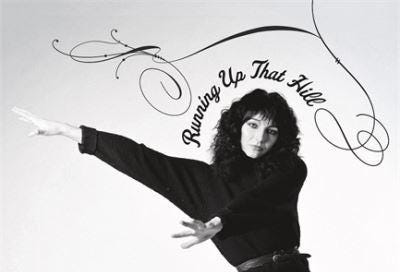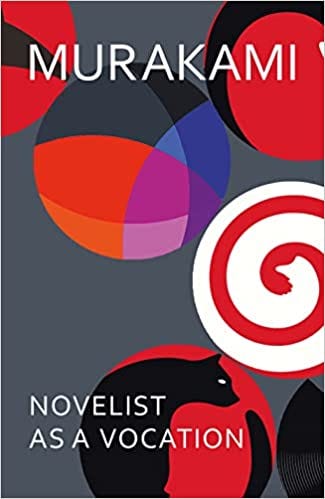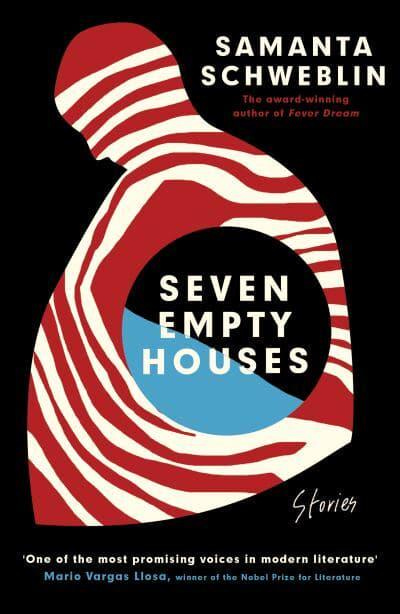What a weekend it has been for me, my first two days in The Book Room have been such a great success and it has been absolutely wonderful to meet so many customers and hear more about what they are reading. It’s also been fascinating to discover just which books are flying off the shelves, and with that in mind this digest of what the papers are reviewing this weekend is put together on the basis of genres I have observed people gravitating towards.
Many of you know by now that the central premise of The Book Room is that it is a bookshop that has been put together by writers for readers, and it is these Writers Recommend curations that are proving so popular. One of them, carefully compiled by author and music journalist Ian Winwood featured a book by Mark Yarm called Everybody Loves This Town – A History of Grunge. The book is made up of oral histories, accounts from the people who were there on the Seattle music scene at the time of the grunge scene, and this book has sold out this weekend (don’t worry, I will be replenishing stock this week!).
There is, a very famous magazine article which changed the face of journalism forever. Frank Sinatra Has a Cold appeared in the 1966 issue of Esquire magazine and centred around the author Gay Talese’s attempts to interview one of the most famous men in the world. Talese kept getting fobbed off with the fact that, well, Frank Sinatra had a cold, and so he put together a profile of ‘ole blue eyes’ by speaking to everyone but the man himself. How did this apparent failure to speak to Frank Sinatra end up being one of the most famous celebrity profiles of all time, and one which many consider to be the greatest profile of its subject? Esquire paid $5,000 in expenses over three months while Talese attempted to track down Sinatra, and yet the writing he produced finally was worth its weight in gold. I suggest you have a read yourself here, as a writer I always find myself returning to this piece, perhaps it was an inspiration to Mark Yarm when he was putting together his history of the grunge scene. I wouldn’t be surpised.
So it was with great interest that I read in the Saturday Guardian a review of Running up that Hill – 50 Visions of Kate Bush by Tom Doyle.
Most people know that Kate is an elusive character, and yet just like Talese, Doyle has managed to bring the woman herself alive on the page by speaking to those who have been there at every part of her career.
‘A swish photo book would be one way around it,’ writes Caroline Sullivan reviewing, ‘… Doyle’s idea, though, was to create a join-the-dots outline of Bush by looking at 50 scattered slices of her career. Along with her own 2005 comments (Doyle interviewed her for Mojo magazine back then), 50 Visions recounts her life through the opinions and experiences of others. Interviewees include her brother, John, writer Ian Rankin (“you can read her the way you would a poet or a novelist”), Pink Floyd’s David Gilmour, who funded her early demos, and – well, why not? – the founders of The Most Wuthering Heights Day Ever, a gathering of people who wear Bush-style red dresses and dance to the song.’
It sounds fascinating, rich and colourful, and as Ian told me when I interviewed him so he could explain his own Writers Recommend picks, contradictions or conflicting accounts from people who were there at the time, only add to the rich tapestry of these stories and just go to show how unreliable memory really is.
Fans of Kate Bush will love this new book, I can’t wait to get my hands on it.
• Running Up That Hill – 50 Visions of Kate Bush by Tom Doyle (Faber) £20
Another book which has sold out this weekend has been George Saunders’ A Swim in a Pond in the Rain, a brilliant book that I thoroughly recommend not only to those interested in writing, but in how to live. George takes four short stories by Russian writers and gets to the heart of what they have to say and how the writers said it. You don’t have to be a writer to enjoy the book, but if you are, you will love it. But another book many newspaper reviewers were talking about this weekend was Novelist as a Vocation by Haruki Murakami. It always seems a very generous act for writers to divulge what makes them tick, and Murakami admits, somewhat randomly, that it was a sudden thought that came to him at a baseball game that made him believe he could be a novelist. Six months later he had written a short novel called Hear the Wind Sing, since then he has, of course, gone on to be a one of the great writers of our time, but in an extract of his latest book published in The Observer, Murakami admits that he developed his minimalist style by writing first in English, a second language to his native Japanese, and then translating that pared-back prose back into Japanese.
‘In the process, inevitably, a new style of Japanese emerged,’ Murakami writes, ‘The style that became mine, one that I had discovered. “Now I get it,” I thought. “This is how I should be doing it.” It was a moment of pure clarity.’
Novelist as a Vocation is translated again back into English by Philip Gabriel and Ted Goossen, yet reviewer Sean O’Hagan promises us that this latest book is ‘a series of glimpses inside the singular mind of Murakami.’
• Novelist as a Vocation by Haruki Murakami (Harvill Secker) £18.99
Another curation that has proved so popular in the shop is the list put together by Marc Hamer, author of Seed to Dust among others. When I asked Marc to put together a collection of books on nature writing, he replied to me: ‘I rarely read nature books, I’m not a naturalist or a collector of things or information bout things, and don’t really care about the difference between a Hawk and a Falcon or how many of them there are. I am interested in the flow of nature itself, the coming into being of things and their fading away, how we are part of that coming and going and how we can live a good life with that awareness.’
His books do a fabulous job of reflecting that so it is no wonder they have been disappearing fast from my shelves. The Telegraph gave Ronald Blythe’s new collection Next to Nature – A Lifetime in the British Countryside five out of five proclaiming that there will never be another like Blythe, who turned 100 this weekend. Blythe has been documenting life from his various patches of land since the 1960s and this is a collection of his essays which Susan Hill describes as the perfect introduction to Blythe and his life.
‘His descriptions of the world around him and records of its strange doing, written in ever-fresh prose, are as vivid as paintings… he is a writer whose pages you turn and then turn back immediately to re-read, relish and get by heart particular phrases and images.’
I have a feeling Marc Hamer might approve.
The Sunday Times reviewer, John Carey, wrote: ‘I do not know of another work that lets you so directly into another person’s mind and memory. In bed at night he listens to the ‘heart-stoppingly wild cries of foxes’ and owls swooping as mice ‘run for their lives’
.
Some may not find his numerous references to the church of as much interest as his observations of the natural world, but this does sound a very special book for nature lovers.
• Next to Nature – A Lifetime in the British Countryside by Ronald Blythe (John Murray) £25
This morning, before I opened up the shop I interviewed Sarah Salway my friend and also poet, short story/flash fiction writer, and novelist. Sarah has put together a wonderful curation of her favourite short story collections, and it is one of her choices (the George Saunders’ book) which has already sold out. When we discussed the short story form both of us commented on how magical short stories are for giving us a slice of life, bringing our attention to the page, to the moment and yet a good short story makes us feel as if we have just dropped into these characters lives, that they existed before we arrived and after we depart in a way that novels don’t always do in their eagerness to tie up loose ends.
It is with that in mind that I saw a couple of reviews over the weekend for Seven Empty Houses, a collection by Argentine writer Samanta Schweblin (another Argentine writer Mariana Enriquez’ collection The Dangers of Smoking in Bed is also in Sarah’s curation coincidentally).
Reviewing Seven Empty Houses in The Sunday Times, Claire Lowdon describes Schweblin as a cross between Frank Kafka and Elizabeth Strout, which would be one hell of a lovechild.
‘Nothing impossible happens in Seven Empty Houses,’ writers Lowdon, ‘but these are challenging stories. Each poses a fresh riddle, and they will appeal to readers who are prepared to be set adrift, to read for intimation and atmosphere rather than resolution.’
Exactly as I said above. I hope The Book Room will be a place for further exploration of the short story. I would love, if I achieve my dream of a permanent shop, to hold short story workshops and readings, to recreate my short story module at University of East Anglia where I did my masters degree in creative writing, though our conversations in those autumn afternoons often strayed from the technical into philosophy – exactly what short stories are meant to do in my opinion.
• Seven Empty Houses by Samanta Schweblin (Oneworld) £12.99
Over the next couple of weeks I will be publishing the interviews I have done for the Writers Recommend curations, so subscribers to this newsletter will see them first. If you are not a subscriber you can do so here…
You can of course buy all of these books from me but, due to the time I’ve had to focus on opening the physical store, my website is still not ready for you to purchase from, and so if you would like to purchase any (or all!) of the titles mentioned, pop in and see me at the shop (Tuesday to Sunday), or email me anna@annawharton.com and I will be only too happy to process that for you.
Until next Sunday…








I came across George Saunders’ A Swim in a Pond in the Rain by accident but loved it. I was just talking to a friend about it yesterday who had been hibernating a little and taken the time to read War and Peace. And I can’t wait to read the new Murakami. He’s always been a favourite.